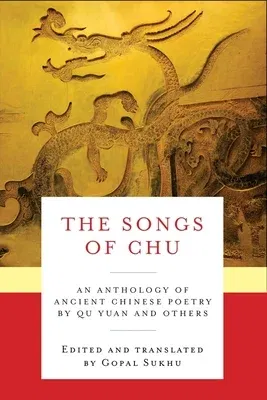Yuan Qu
(Author)The Songs of Chu: An Anthology of Ancient Chinese Poetry by Qu Yuan and OthersHardcover, 18 July 2017

Qty
1
Turbo
Ships in 2 - 3 days
In Stock
Free Delivery
Cash on Delivery
15 Days
Free Returns
Secure Checkout

Part of Series
Translations from the Asian Classics
Part of Series
Translations from the Asian Classics (Hardcover)
Print Length
304 pages
Language
English
Publisher
Columbia University Press
Date Published
18 Jul 2017
ISBN-10
0231166060
ISBN-13
9780231166065
Description
Product Details
Author:
Book Format:
Hardcover
Country of Origin:
US
Date Published:
18 July 2017
Dimensions:
23.11 x
14.99 x
2.29 cm
ISBN-10:
0231166060
ISBN-13:
9780231166065
Language:
English
Location:
New York
Pages:
304
Publisher:
Weight:
521.63 gm